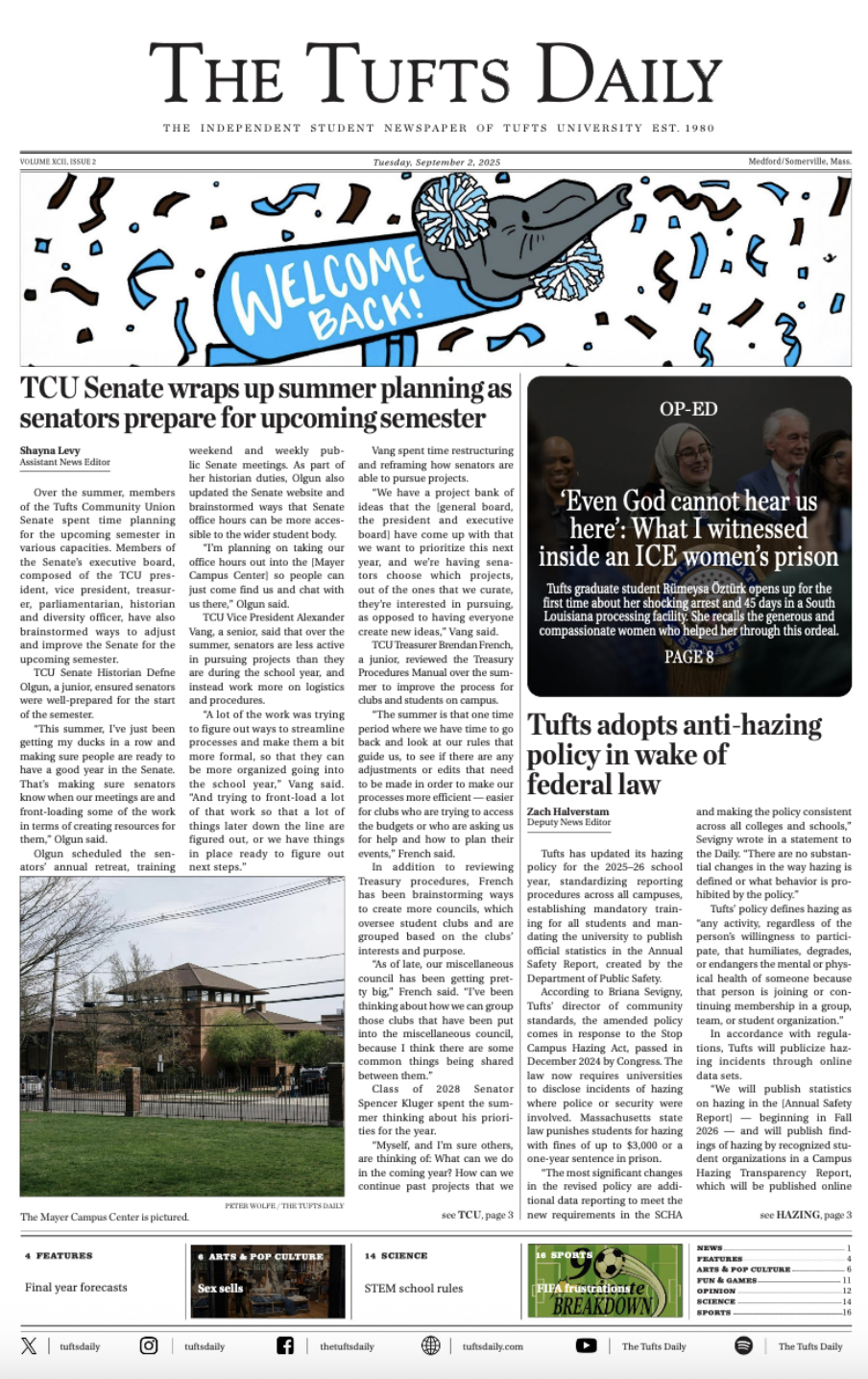Officials at Tufts' School of Medicine want their students to be better prepared for the careers that await them.
And with that in mind, they plan to roll out a new curriculum aimed at adapting to the ever-developing field of medicine and giving students earlier access to hands-on experience. It is set to be instituted in the fall of 2009 for the graduating class of 2013.
According to Dr. Scott Epstein, the medical school's dean of educational affairs, the changes will shorten the first two years of the school's lecture-based approach by a quarter of a year and allow students to transfer into clerkships at the end of their second year. Under the old curriculum, students were not able to do this until the beginning of their third year.
Clerkships bring medical students into direct contact with patients through faculty supervision in a given area of practice.
"Students will understand right away what it's like to be a doctor," said Epstein, who chairs the steering committee that spearheaded the curriculum change.
As such, he said that the revitalization of the curriculum will help the school keep up with the times.
"The skills I learned 25 years ago are not necessarily the skills needed now," he said.
While other medical schools have adapted their curricula out of necessity, Tufts is making changes from a position of strength and because they are the appropriate next steps, Epstein said.
Currently, he said that students that graduate from Tufts "do extraordinarily well" and the changes will help keep it that way.
"We want Tufts students to continue to thrive," he said.
A highlight of the new curriculum will be the earlier exposure of students to more topics that are specific to their career interests.
"All students feel a great deal of pressure because of a lack of exposure to their specialty," said Dr. Amy Kuhlik, the medical school's dean of student affairs.
Another significant aspect of the program is the creation of what Epstein calls "learning communities." These will consist of four groups of students interacting with professors, who will have an increased role as advisors.
Epstein said this group learning follows the trend of medicinal education as it moves away from courses heavily dominated by lectures.
He also emphasized that the new curriculum will enhance the school's community service requirement by providing more opportunities for global health care work.
In the years after Dr. Michael Rosenblatt, the medical school's dean, proposed changes to the curriculum in 2003, students have been heavily involved in the process. Seventeen committees were formed, and of the 200 people that served on them, around 65 were students.
Fourth-year medical student Justin Ko, who served on the Class Education Curriculum Committee, said he is excited about the changes.
"I wish I were coming in as a new first year student when the new curriculum starts," he said. "It sounds like a very exciting way to train future physicians for the future of medicine."
He said that the changes will make the curriculum more relevant for students. "From day one, students will be treated as future physicians in training," he said. "They will truly enjoy the experience."
Parts of the new curriculum have already been implemented this year. For example, students have displayed an increased dedication to global health with trips to India and Africa.
Epstein said that it makes sense to move forward even before the 2009 start date.
"Why wait two years to do this?" he asked.





